navigate
Everything You Need to Know About the Marriage License Process
For some, the exchange of rings and a verbal commitment to a life-long partnership and love is enough. However, for many, the legalities that tie in with marriage are just as important. From health insurance to tax purposes and more, there are a million and one reasons why couples choose to go through with the official marriage license process. That being said, it does require a little effort at the forefront of the ceremony, so let’s talk: everything you need to know about the marriage license process!
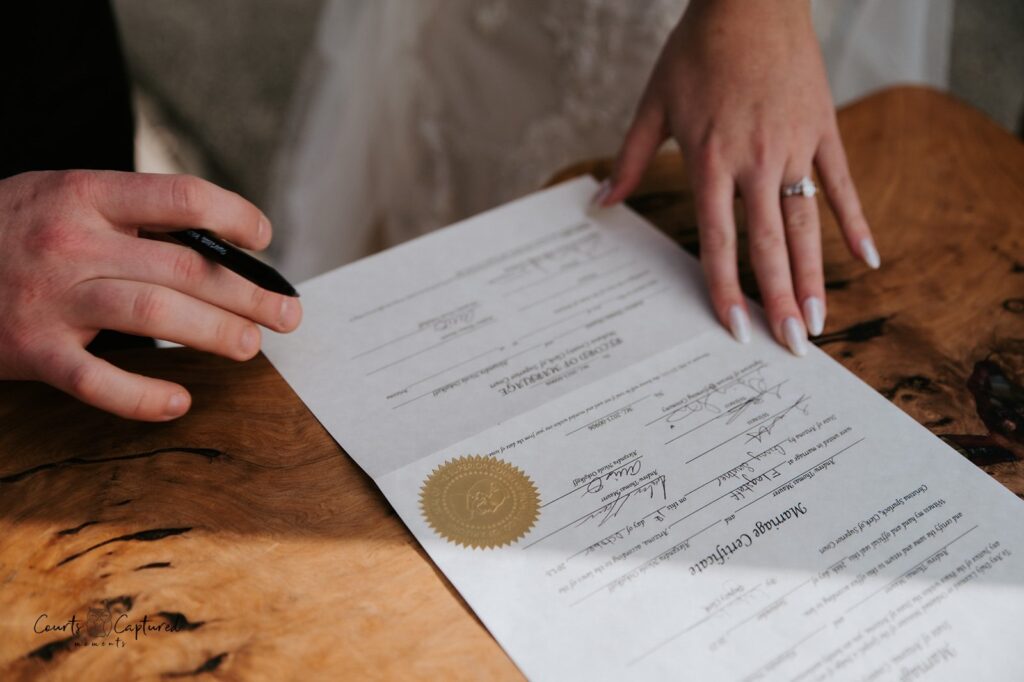
First of all, congratulations! Whether you are thinking about an intimate elopement or a more traditional wedding, this an exciting and beautiful journey you are about to embark on together. Before you walk down the aisle, it’s crucial to navigate the marriage license process. So let’s break it down.
Understanding the Basics.
What is a marriage license? Glad you asked! It is a flimsy little piece of paper that legalizes your union. It authorizes you to join together and is a prerequisite for a legally recognized marriage. The most important thing to note is that all requirements vary depending on your ceremony location.
Where to apply? One thing that doesn’t change is how you get the document together. You will both need to head to your county clerk’s office or the designated marriage license bureau. If you are planning an out-of-state or destination experience, some jurisdictions allow online applications!
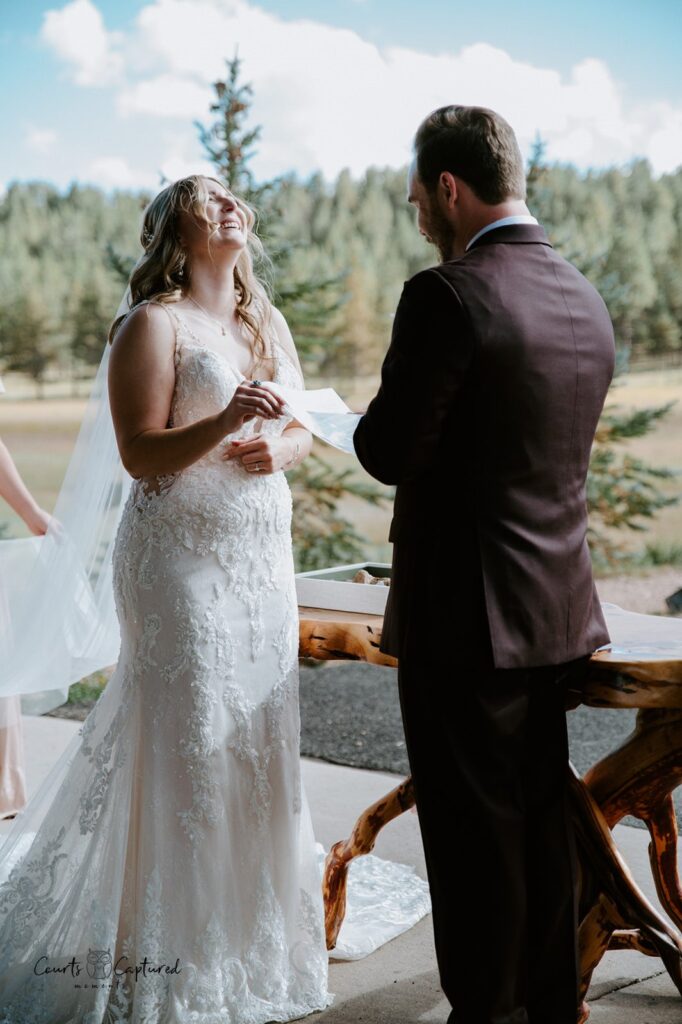
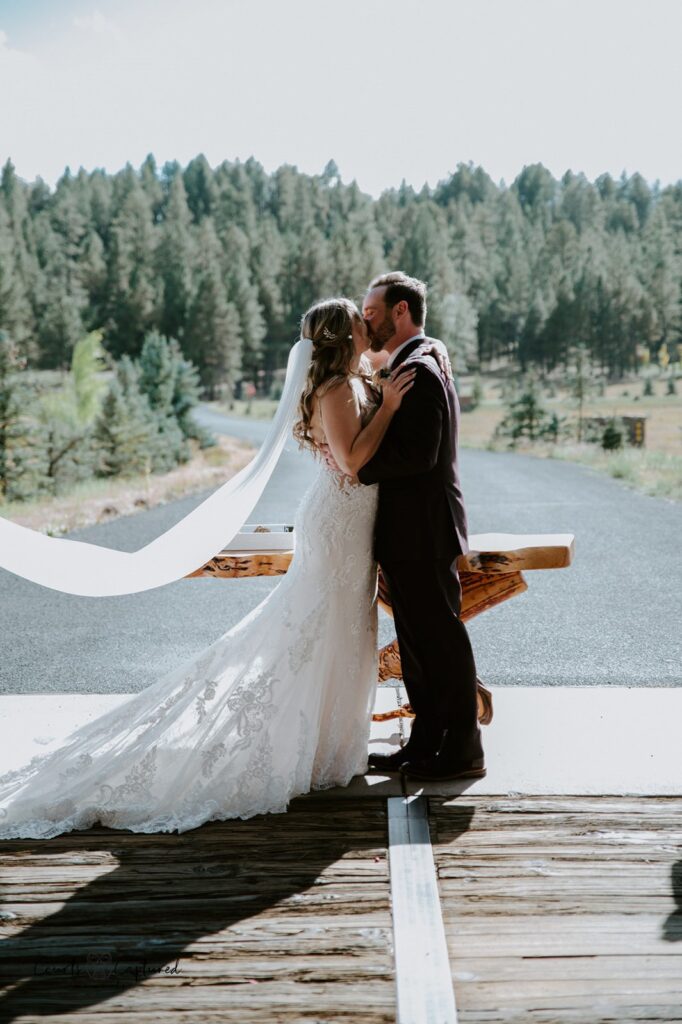
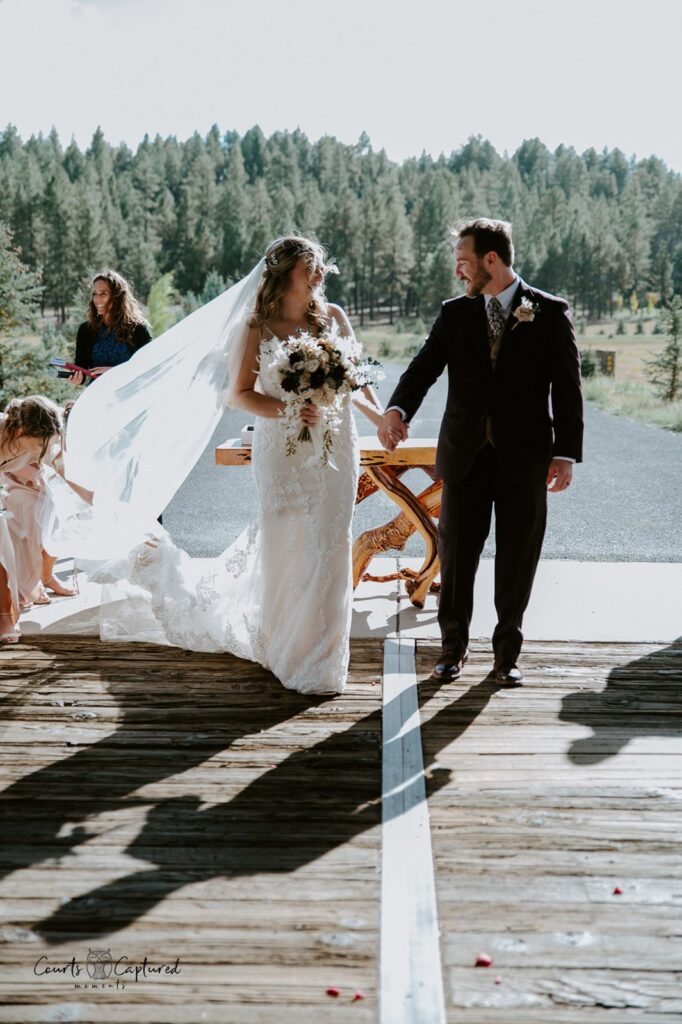
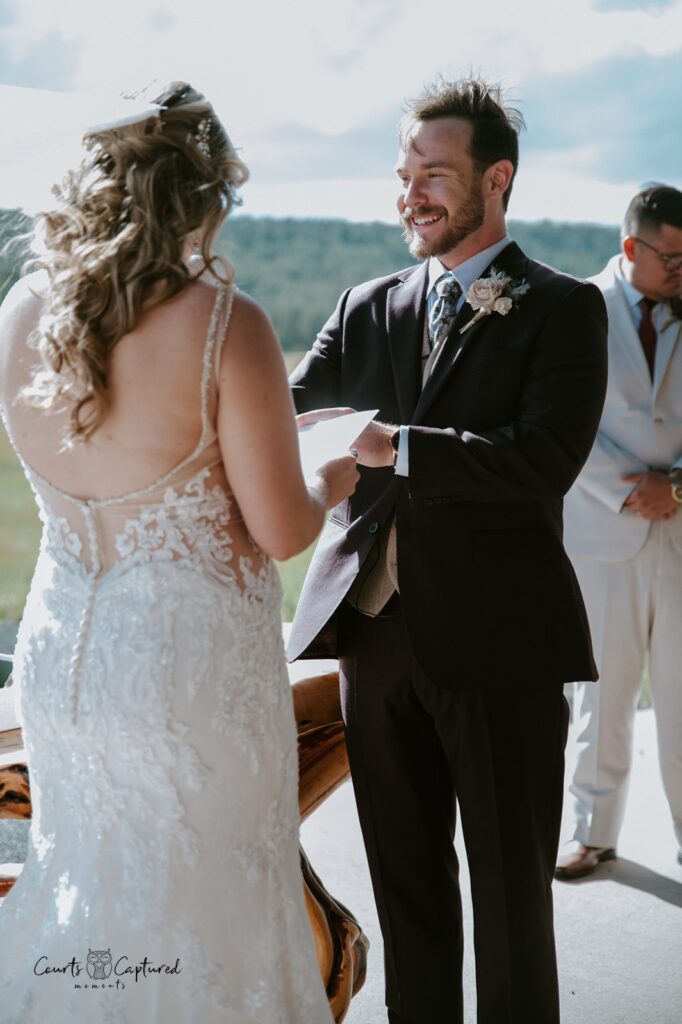
Eligibility and Basic Requirements to Be Aware of in the Marriage License Process
There are a few more basic guidelines that generally apply across the board in the process. When you apply for the license, you both:
- must be present and provide a valid photo identification (driver’s license, passport, military, etc). Some jurisdictions allow a proxy marriage (someone can stand in for one party) if both parties cannot be present during the application process. They may have additional requirements though.
- must be a certain age – typically 18. Several states do have exceptions for minors who have custodial or parental permission or allow minors to petition the court.
- must provide proof of divorce or a death certificate if either party has been previously married.
The personnel at the clerks office or marriage bureau will walk you through how to complete the necessary forms accurately. It’s important to pay attention to all of their guidance. You will need to know your full legal name, address of residence, social security numbers, and sometimes parent names and place of birth.
In some states, you may also have to plan extra time before the ceremony to obtain your license. There may be a wait period before you are approved for a license. Opposite of that, there are usually guidelines for how quickly you need to use the license and return it for filing. For example, in the state of Arizona, you have 12 months to use it after it is issued. However, if you are getting married in Washington, you have a “60-day expiration date for the completion of the ceremony from the date of issuance, and it cannot be extended.”
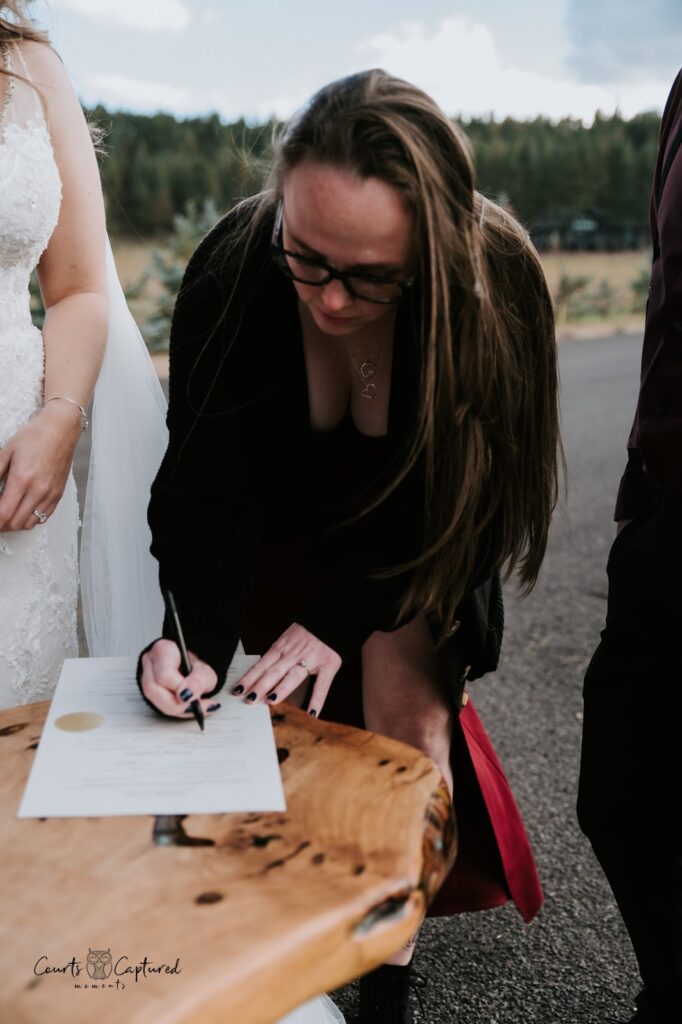
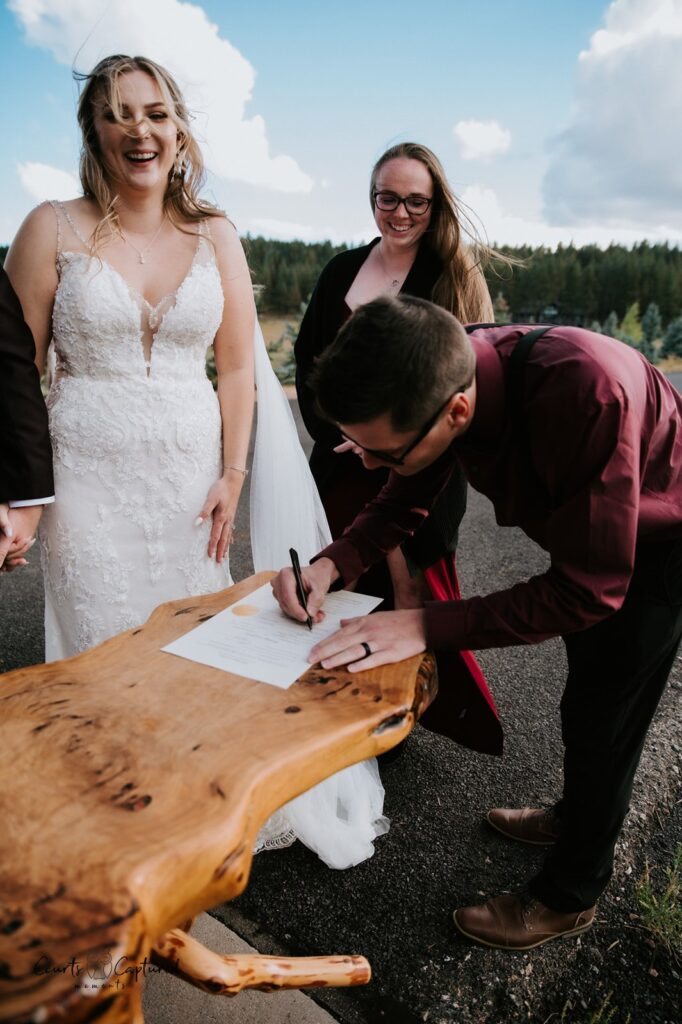
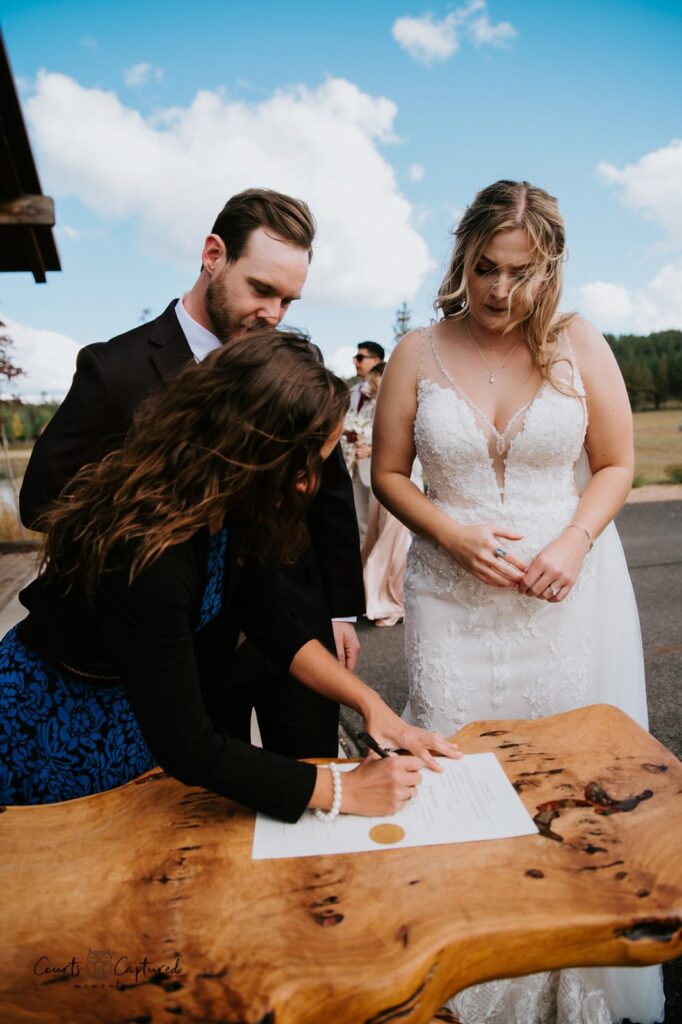
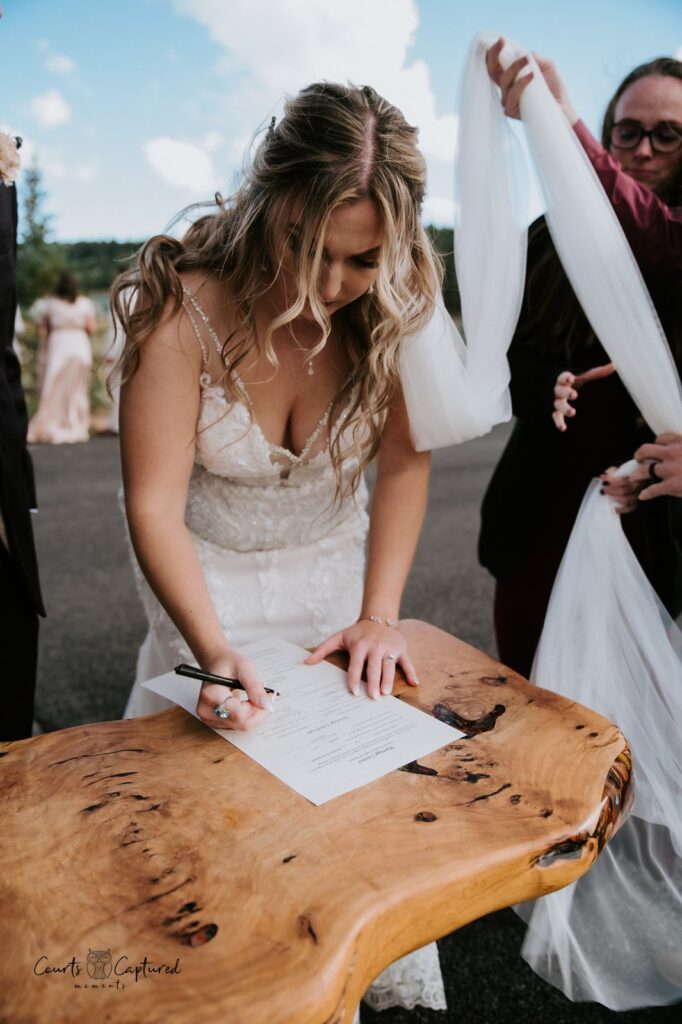
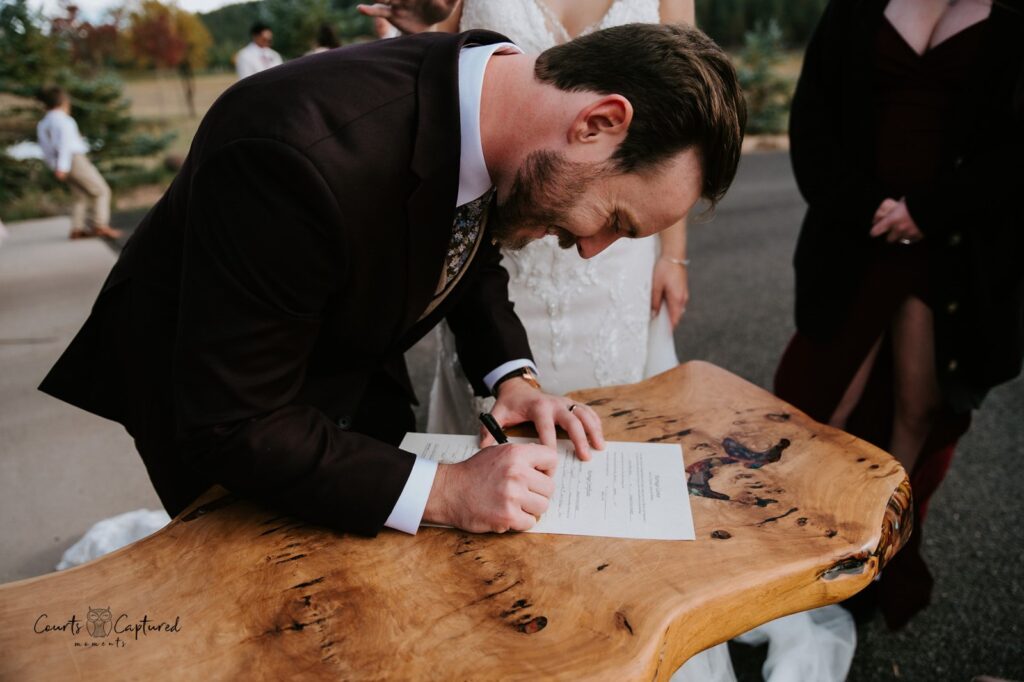
During the budget planning for your wedding or elopement, don’t forget to factor in the marriage license fees! Every location varies, but the average cost is between 40-80 dollars.
Who is Involved in the Marriage License Process?
Outside of you, the couple, you may be required to have an officiant who is authorized by the state or church to perform ceremonies. Generally, when it comes to the wedding day itself, the couple doesn’t have to sign the official license because you sign when you apply for the license itself. However, most offices provide a “pretty” copy for you to sign for photos that you can then display in your home after the fact.
You may also be required to have one or two witnesses that sign the official legal document on the wedding day. Right now, California, Illinois, Maine, Nevada, Wisconsin, D.C., Kansas, Pennsylvania, and Colorado allow self-solemnization. That means you don’t have to have anyone else involved outside of the couple for the official documents. Colorado also has a fun option for pet lovers! Your dog can be included as a legal wedding witness.
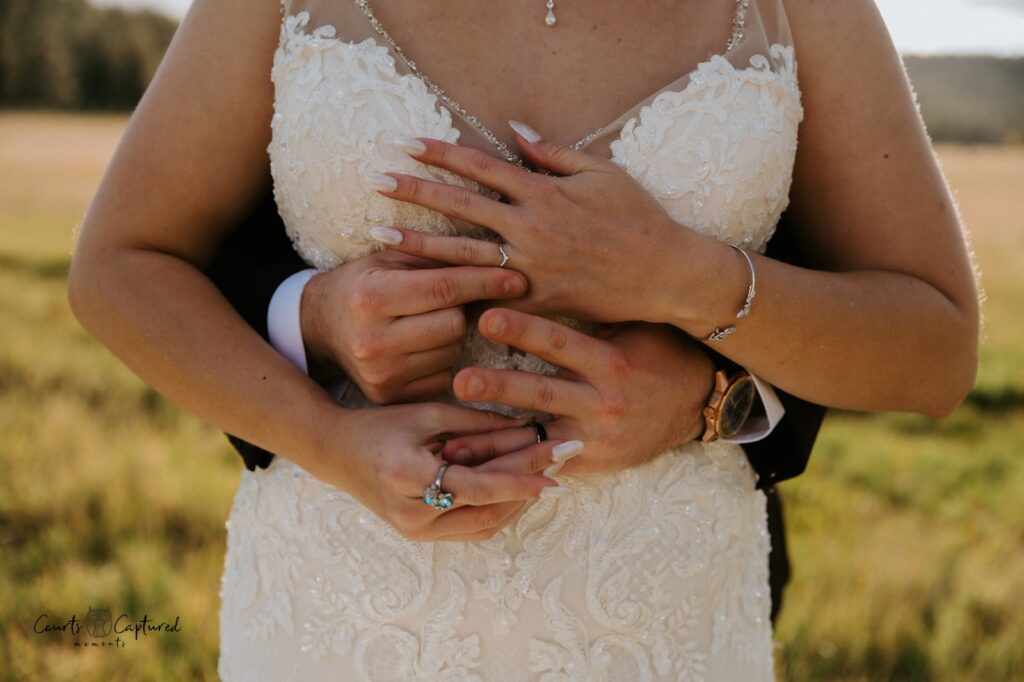
After the wedding ceremony and all signatures have been obtained you can file the license yourself at the same office that you applied at, you can mail it in, or your officiant can be tasked with the assignment.
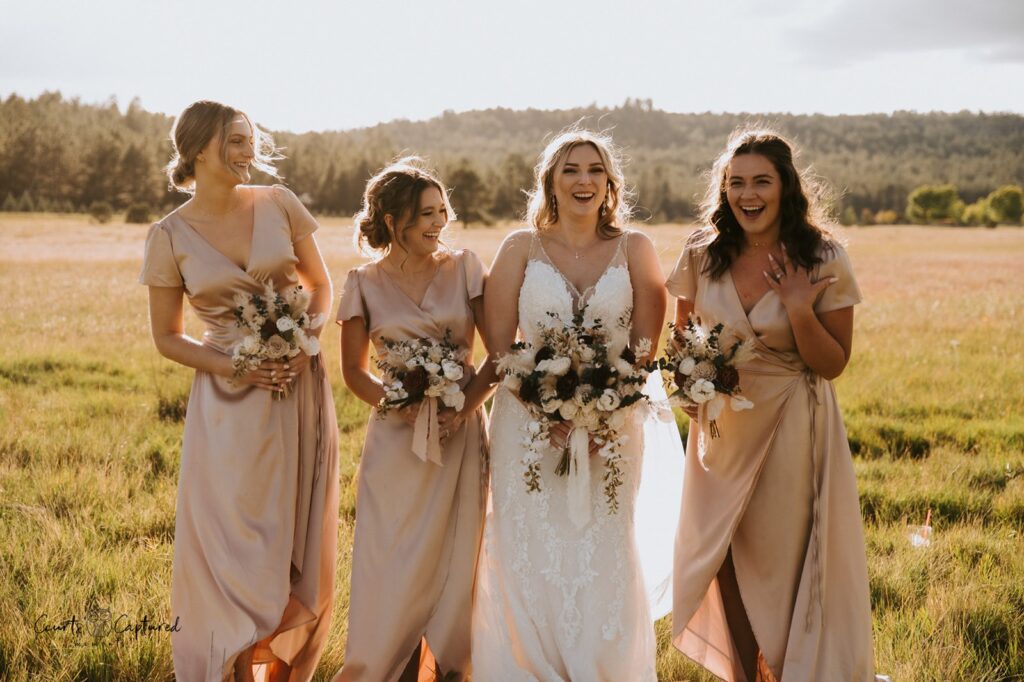
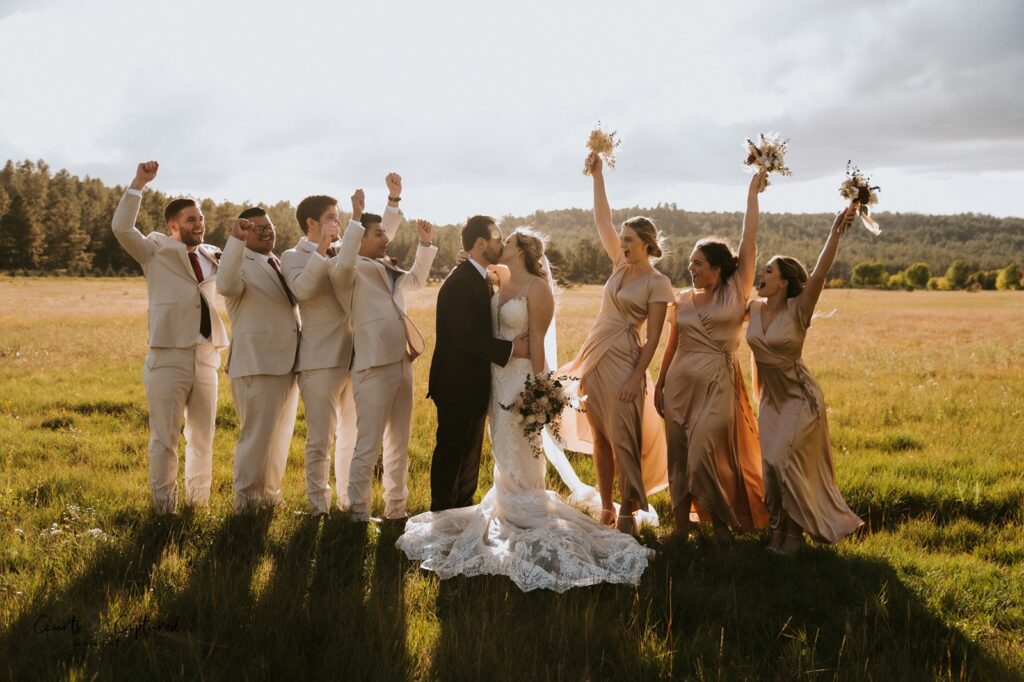
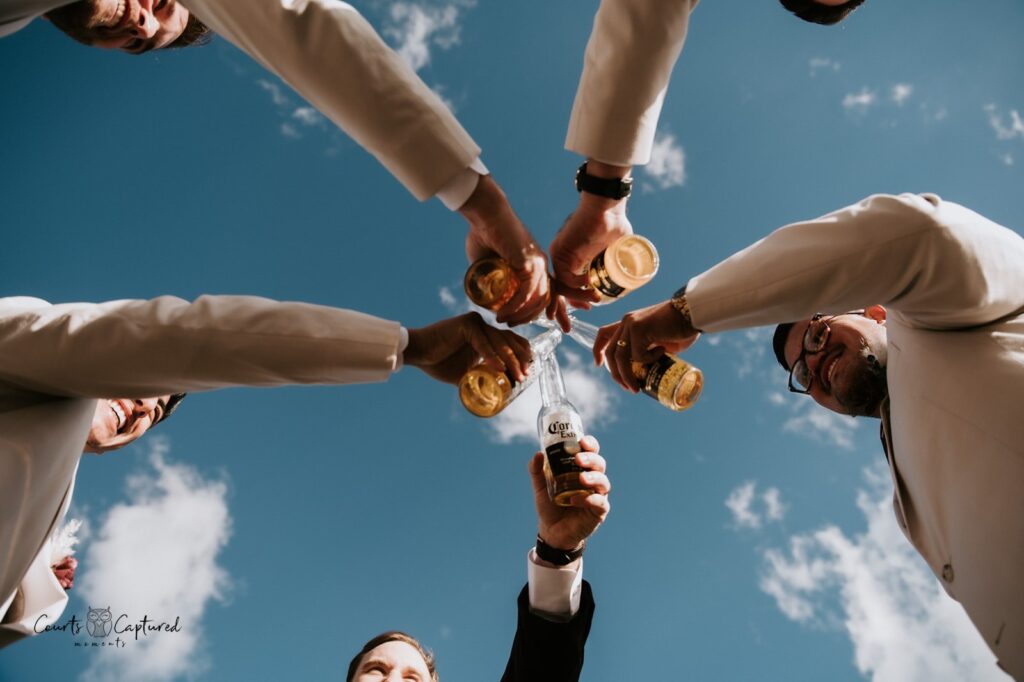
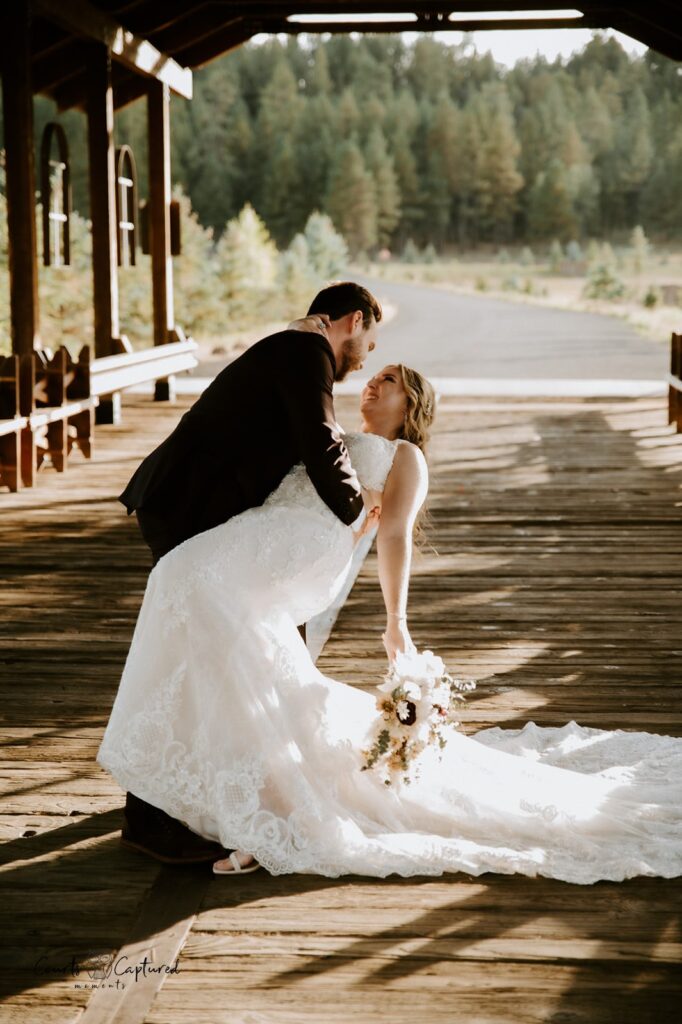
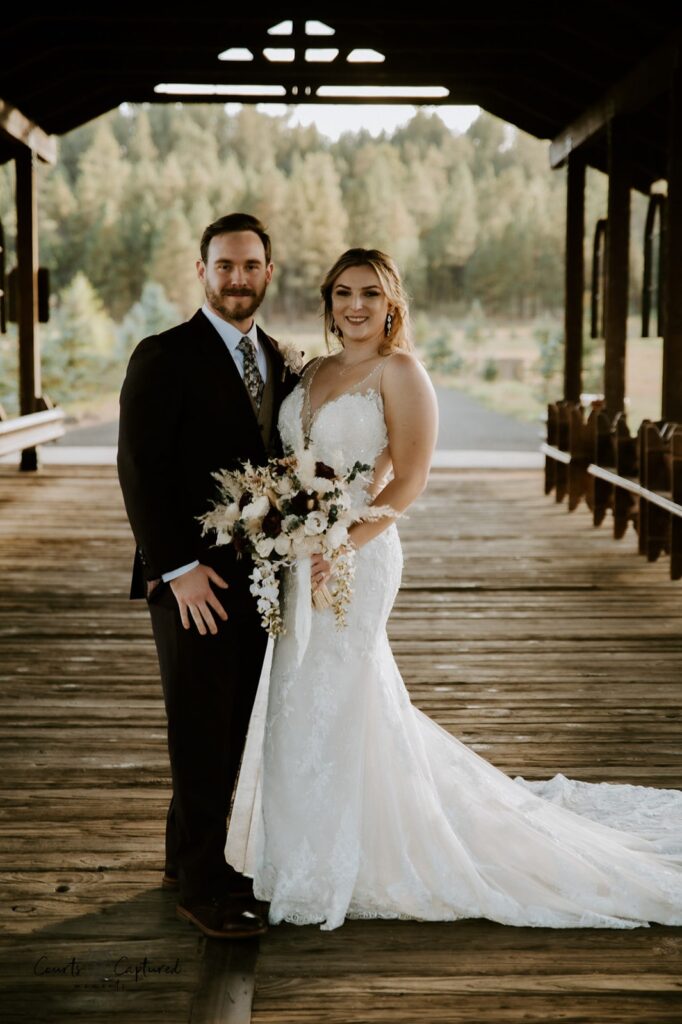
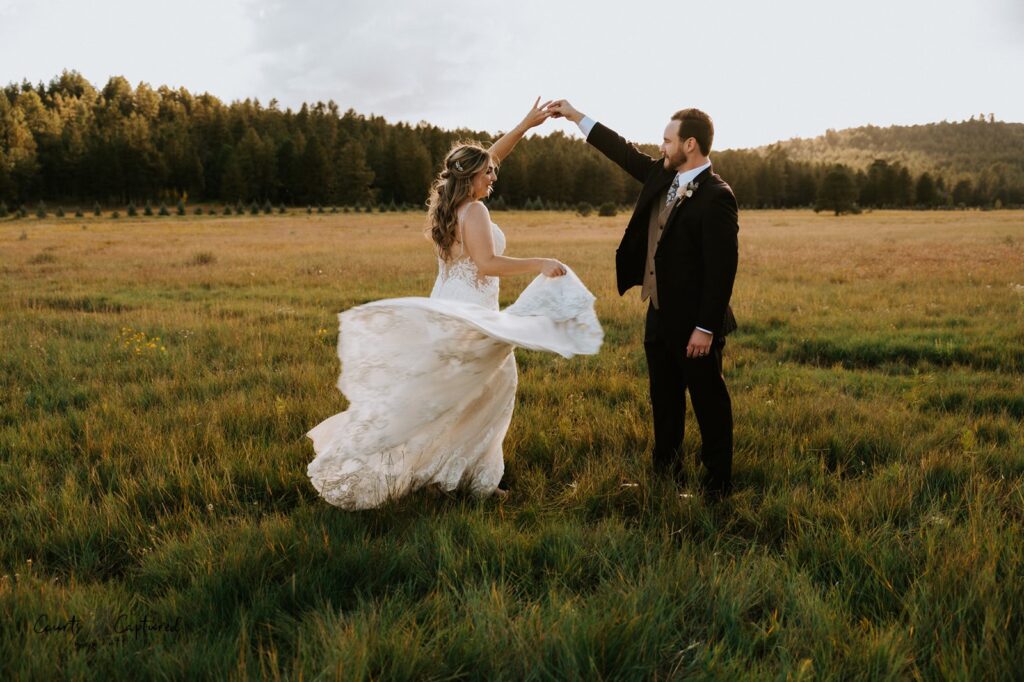
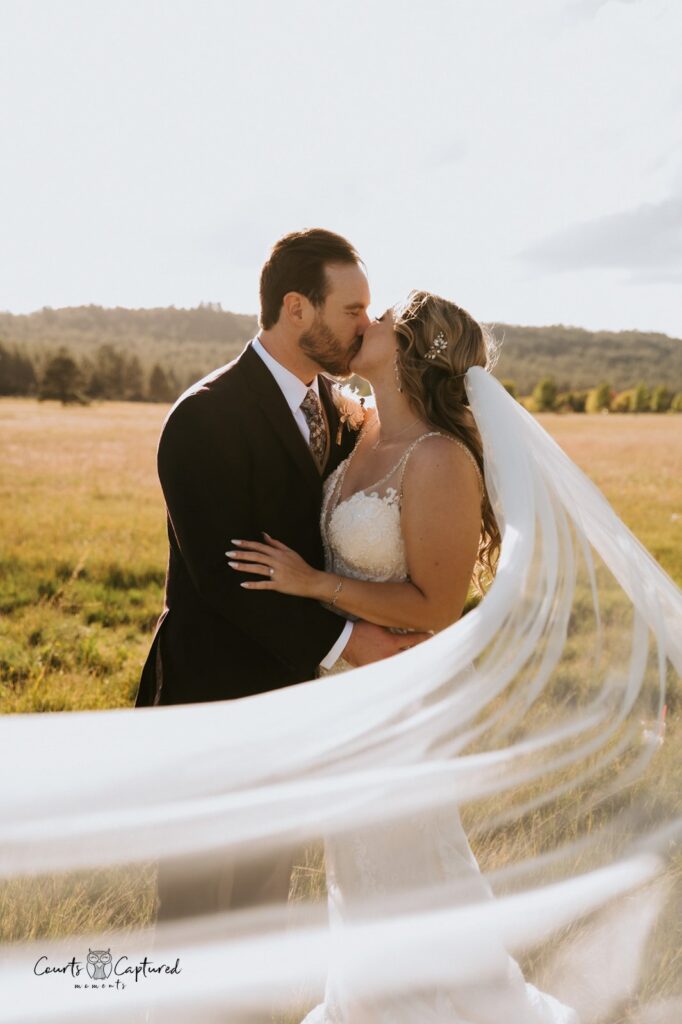
January 5, 2024
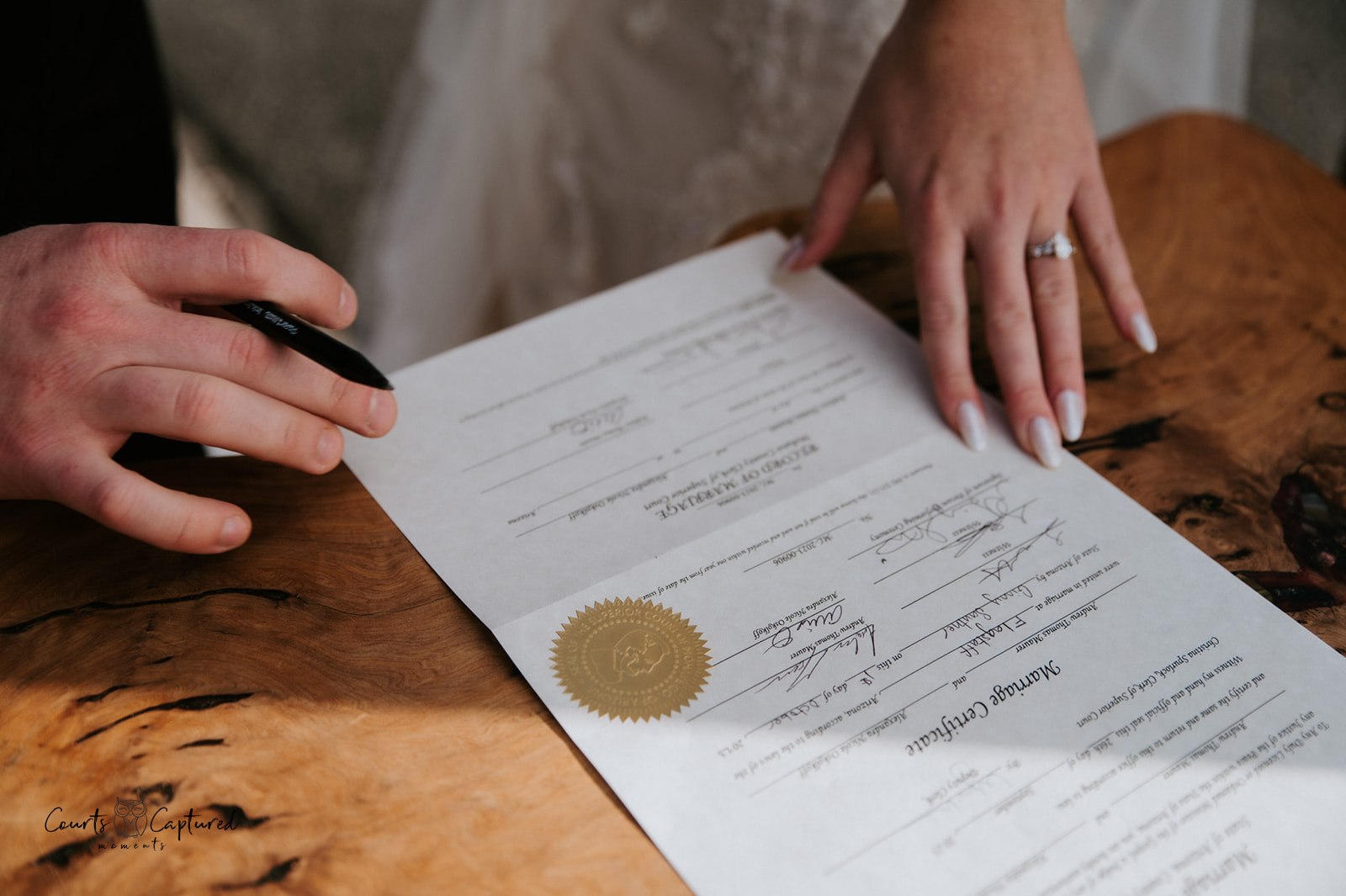
Comments Off on